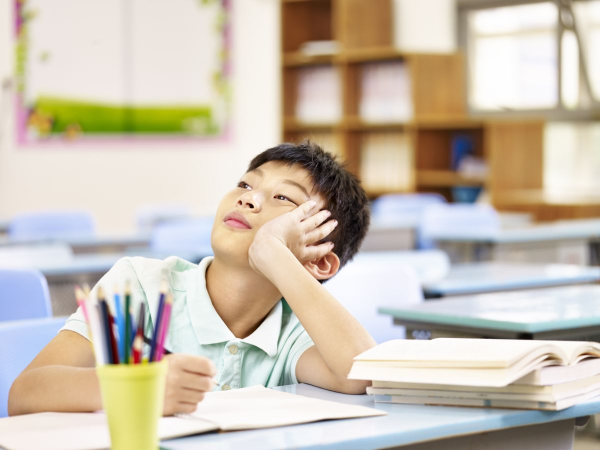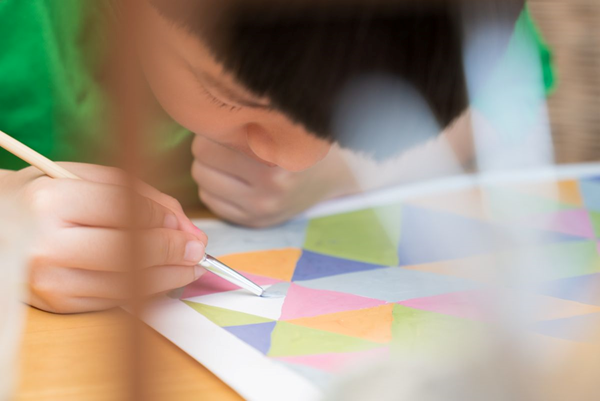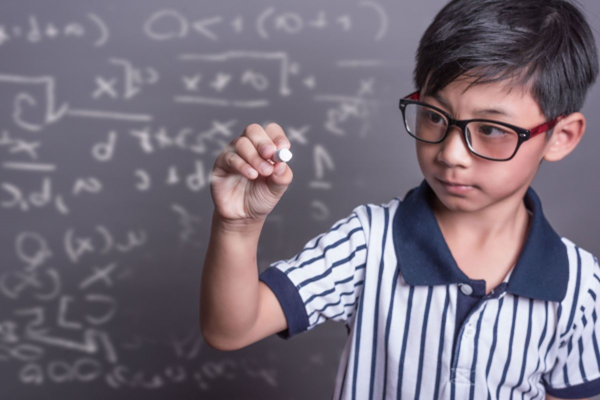Parenting Hacks (5): Twice-exceptional Students Can Succeed - Gifted Children with Autism | Understanding Giftedness | HKAGE
For many parents, having a gifted child at home can be the beginning of worries, as gifted children are different from others. What's more, if the gifted child is identified as a twice-exceptional student, i.e. possessing both gifted traits and one or more special educational needs, their learning progress can be hindered, leading to frustration and, in some cases, behavioural issues.
In fact, many twice-exceptional students can achieve significant success when they have grown up. Let's take the example of gifted children with autism spectrum disorder (will be stated simply as autism in this article) to explore their pathway to success.

Strategies
Most gifted children with autism demonstrate advanced language skills at a young age. Due to their exceptional memory and reasoning abilities, they often start reading, spelling, and counting early. Adults are often amazed at their proficiency in these areas. Additionally, their excellent memory allows them to develop puns, conversational tricks, and poetry, showcasing strong senses of humour, despite difficulties in socialising with peers.
However, when they enter a school system that emphasises written expression and reading comprehension, challenges arise. While their reading abilities may be high, their comprehension abilities tend to be lower, making them more inclined towards non-fiction books. They may struggle with writing, and their writing skills may further deteriorate as they advance to higher grades. Some gifted children with autism even fail to understand the purpose of examinations, questioning why they need to go through the "extra hassle" if their teachers already know they have mastered the content.
Further Reading: Parenting Hacks (1): Understanding Twice-exceptional Students
Further Reading: Parenting Hacks (2): How to Nurture the Potential of Twice-exceptional Students?

Collaboration between parents and schools is crucial. It not only facilitates communication between both parties but also helps the gifted children with autism transition smoothly from home to school and supports their success in the school environment. When communicating with teachers, parents may want to highlight the following traits of their children and how these traits impact their learning at school:
- Asynchronous development
- Excellent memory skills
- Exceptional language abilities
- Values: equality, honesty, and integrity
(Webb, Amend, Webb, Goerss, Beljan & Olenchak, 2005)
Creating a supportive and understanding learning environment is essential for twice-exceptional students. They need to feel valued and respected for any adaptations made for them. Adjustments in teaching methods and homework expectations, such as adaptive approaches to delivering knowledge and allowing the use of visual strategies and computer-assisted programs to mitigate writing and homework challenges, can be beneficial.
Teachers should understand that these students may struggle to grasp abstract concepts compared to concrete ones. Their rigid thinking often requires clear instructions. Additionally, they value routines and will find it difficult to accept, which make them frustrated, when rules are broken or changed. Teachers can foster an accepting environment by incorporating group activities such as role-playing, simulations of different social situations and perspectives, and appropriate social interactions.
Experienced psychologists can assess these children for hidden emotional and behavioural issues. Moreover, experts who understand the needs of twice-exceptional students can thoroughly evaluate their strengths and weaknesses and provide practical strategies to compensate for their weaknesses while maximizing their talents, rather than solely focusing on their weaknesses.

Further Reading: Parenting Hacks (3): Cultivating Executive Functions in Twice-exceptional Students
Further Reading: Parenting Hacks (4): Importance of Home-School Collaboration to Twice-exceptional Students
Most gifted children with autism have unique interests and great enthusiasm for learning, like other gifted individuals. They can become deeply engrossed in their passions, losing track of time and enthusiastically sharing their interests. Patiently listening to these twice-exceptional children can be highly beneficial. Their unique interests may include studying maps, building puzzles, researching bus routes, or anything predictable and controllable. These interests provide comfort, relaxation, and a sense of control over their lives.
Parents should refrain from trying to suppress these unique interests. Instead, they can harness their children's passions to facilitate social interactions and further develop their expertise. Often, these interests require experiences outside of school to be fully cultivated and appreciated. These children also need to set personal goals to affirm their self-worth and develop their capabilities. When their potential is nurtured, they can excel in various areas such as mathematics, writing, science, foreign languages, chess, music, and art.
Theory

Answers:
- Most gifted children with autism are indeed visual thinkers. They think and comprehend in the form of images, and sometimes their brains translate spoken words into a sequence of images. As a result, they excel in visual tasks such as puzzles and map reading. Temple Grandin, for example, is a gifted individual with autism. She has mentioned that she can see her designs from a distance, rotate them mentally, and view them from different angles (Grandin, 1995).
- Gifted children with autism can also rise to exceptional levels of achievement and accomplish remarkable feats. In fact, some even argue that they may be the only ones capable of achieving certain milestones. These children demonstrate the ability to compensate for their weaknesses. Their special interests reflect their steadfastness, intellectual prowess, autonomous and unique mental processes, and intense concentration. These qualities are vital for them to excel in their chosen domains (Neihart, 2000).
- Many gifted children with autism have uneven development, particularly between their cognitive abilities and executive functions. To enhance their organisational skills and efficiency in daily life, a visual structure system can be established for them. Parents can use various organisational tools, such as labelled ziplock bags, codes and numbering, compartmentalising objects (e.g., divided pencil cases), and even limiting the number of objects they have (e.g., providing only one backup pen or allowing them to bring only the necessary books).
- To foster the potential of twice-exceptional children, the curriculum should align with their abilities. Traditional pen-and-paper learning methods may not be suitable for these children. However, school classroom time is limited, and teachers may struggle to incorporate areas such as art, drama, music, computers, and videos in a meaningful way. These interdisciplinary activities can be carried out at home, allowing twice-exceptional students to develop their talents and view learning as a process that connects multiple domains rather than mere reading and writing. Providing opportunities for children to link their learning to areas in which they excel can build their confidence and lead to success.
- While many may emphasise the importance of adaptation in the Individualised Education Program (IEP) for twice-exceptional students, talent development is actually the most crucial element. Talent development helps twice-exceptional students develop a sense of self-efficacy and learn how to achieve success, serving as the foundation for their social skills development. Strategies such as mentorship programmes, internships, problem-based learning, and self-directed learning can assist them in achieving these goals (Baum, S., 2007).
———————————
Note 1: The story of Temple Grandin has been made into a movie titled Temple Grandin.
Further Reading: Dispelling the 5 Common Myths about Giftedness
Further Reading: Nurturing the Emotional and Social Development of Gifted Students: Affective Education
References:
- Baum, S. (2007). Gifted and Learning Disabled:Research Based Strategies. Twice-Exceptional Newsletter , Glen Ellyn Media. Issue 20, p.10.
- Grandin, T. (1995). Thinking in pictures . New York:Doubleday.
- Neihart, M. (2000). Gifted Children with Asperger's Syndrome. Gifted Child Quarterly , 44 (4), 222-230. http://www.davidsongifted.org/db/Articles_id_10167.aspx
- Webb, J., Amend, E., Webb, N., Goerss, J., Beljan, P., & Olenchak, F.R. (2005). Misdiagnosis and Dual Diagnoses of Gifted Children and Adults . Scottsdale, AZ: Great Potential Press.






